Rothschild & Co
Rothschild & Co is one of the world’s leading financial advisory firms, offering expertise in investment banking, asset management, and wealth planning. With a legacy dating back over 200 years, the firm has built a reputation for discreet, independent, and strategic financial guidance for governments, corporations, and high-net-worth individuals.
Operating in over 40 countries, Rothschild & Co specializes in mergers and acquisitions (M&A), capital markets advisory, debt restructuring, and investment strategies. Their ability to navigate complex financial landscapes has made them a trusted partner for clients seeking long-term financial solutions.
With a commitment to innovation, sustainability, and ethical finance, Rothschild & Co continues to shape global markets while preserving its tradition of excellence and discretion in the modern financial world.
The foundation of our business is a reputation for trust, integrity and expert advice.
Over the past 200 years we have nurtured this reputation through close collaboration, and by embracing and supporting innovation in order to remain at the forefront of our industry.
1769
The Rothschild family trace their origins back to 15th century Frankfurt. The records of our business begin with Mayer Amschel Rothschild in 1769.
Mayer Amschel built a successful business in financial services, and a reputation for trustworthiness, deep market understanding, and enduring relationships.

1810s
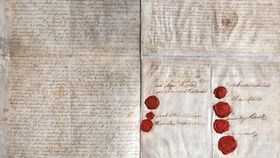
Understanding the importance of maintaining the reputation of the business across future generations, and strength in unity and collaboration, Mayer Amschel created the first partnership agreement, which is the foundation document of our modern business.

We are like the mechanism of a watch… each part is essential.
The tenets of the agreement became a business model adopted by his five sons as they established the business in the financial centres of Europe – London, Paris, Vienna, Naples and Frankfurt.
1820s
The brothers’ new business were a success due to the involvement of the entire extended family. With the four younger brothers arriving in new countries, they, their wives and their families set to building business and social relationships, information networks. They also promoted cultural exchanges and philanthropic programmes, as exemplified by James’ wife Betty. This helped establish the family business’ reputation in new markets.
Rothschild women also took a direct role in the business. For example, Nathan Mayer’s wife Hannah dealt with correspondence and was authorised to sign cheques for the company – unusual at the time.
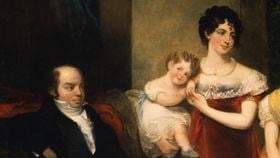
The five brothers combined their local knowledge, networks, and entrepreneurial spirit, to become leaders and innovators with international reach.
An early success was their transformation of the sovereign bond market, creating better outcomes for both lender and borrower. The group would go on to issue bonds and loans for countries on every continent.
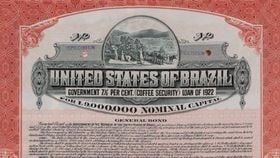
1847

The Rothschild family’s business endeavours were also seen as highly principled, reflecting the family’s dedication to philanthropy. The family held themselves accountable for “doing the right thing.” Many potentially profitable ventures were turned down on questions of principle.
The businesses used their expertise and influence to drive change. One example is the British Relief Association of 1847, established by Lionel de Rothschild to encourage and manage donations for famine relief in Ireland and Scotland.
19th century
Rothschild support for new innovations and new global markets help shape the future of our world.
A key example is railways, with Rothschilds helping to establish early networks in France, India, Brazil and other countries, opening up new markets and increasing social mobility. For example the Chemin de fer du Nord in France was transformational in opening up Paris to a broader population.
Other transformative projects included shipping canals, the London Underground, and in mining where a Rothschild assessment of opportunities was seen as authoritative.
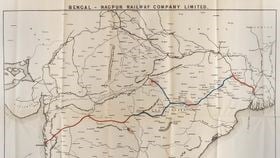
1940s

Rothschild family businesses endured the Second World War through the tenacity, optimism and skills of its people. Anthony de Rothschild created a solid foundation for growth following the war in the UK. The French business was controlled by the government during the war years and returned to the family in 1945. Many of the French family were in exile in New York and while there they created the basis of our modern business in the US.
1950s-90s
The group rejuvenated in the aftermath of wars. The French business developed rapidly post-war, particularly in Asset Management and Wealth Management.
Understanding the importance of local knowledge in a transforming world, new offices were established in every corner of the globe, from to Milan to Mexico, Jakarta to Johannesburg, Sydney to Sao Paulo.
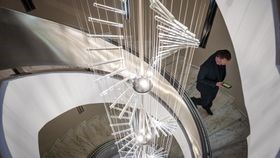
1980s

Sharing skills and expertise across the world, the group became leaders in new and growing areas of financial services. A particular example was the adaptation of the privatisation process devised by the UK business across many countries in the 1980s
1982
A major challenge to our French business was its nationalisation by the Mitterrand government, losing the rue Lafitte offices, its headquarters since 1812. the family were able to retain ownership of the name.
Led by David and Éric de Rothschild, family members and associates worked together across borders to rebuild the French business from the ground up, regaining use of the family name in 1985 and eventually returning to its market-leading position.

2003
Our French and UK business merged to create a unified group under the leadership of David de Rothschild as Executive Chairman.
2003-2023
With a clarity of vision, a single global brand strategy, and strong culture of collaboration, the group continued to pool its expertise and innovate for the benefit of our clients.
Significant events include the merger of our French Wealth Management business with that of Banque Martin Maurel in 2016, the creation of Global Advisory’s independent Financing Advisory offering, and the birth of the Five Arrows business.
Our stability and long-term perspective helped us weather the challenges of the Global Financial Crisis and, more recently, the challenges of the Covid-19 pandemic.
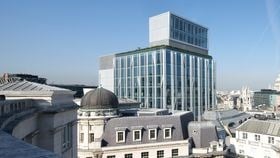
2023
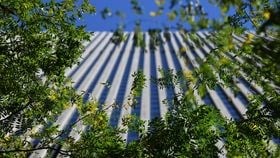
Rothschild & Co delisted from the Euronext Paris stock exchange, demonstrating the family’s confidence in the business. We strengthened our Partnership structure across all the group, reflecting our business model of
Recent history

In 2007, Rothschild formed joint venture Jardine Rothschild Asia Capital with Jardine Strategic, specializing in growth capital investments.
In 2010, the firm appointed the first non-family member chief executive officer, Nigel Higgins.
In 2011, the firm rebranded from “N M Rothschild & Sons” to “Rothschild & Co.” The goal of this was to show “a new global positioning as the fulcrum of the Financial Market.”
In 2015, the parent company Paris Orléans changed its name to Rothschild & Co to match the trade name of the business.
In 2017, Rothschild & Co acquired the family-controlled French private bank Martin Maurel. This merger united the businesses of two European financial families. After the acquisition, Rothschild & Co became the leading private bank in France.
In 2018, Rothschild & Co sold its trust services division (responsible for the creation and administration of trust structures) to Richard Martin, a long-time Rothschild executive for an undisclosed amount. This restructuring of Rothschild’s Wealth Management practice allowed the firm to focus more on its private banking activities from the recent purchase and integration of Rothschild Martin Maurel.
In 2019, the firm acquired a stake in Redburn, a global financial services firm that provides research in various coverage sectors and brokerage execution services for traditional and algorithmic sales and trading.
In 2022, Wintrust announced a deal to acquire the U.S. asset management arm of Rothschild, which held around $8 billion in assets under management at the time.
In 2023, the Rothschild family announced its intention to take Rothschild & Co. private by repurchasing the shares listed on stock exchanges. The transaction values the firm at €3.7bn and would end several decades of the firm being publicly listed.
Operations
Rothschild & Co has three primary businesses: Global Advisory (Investment Banking Division), Wealth and Asset Management, and Five Arrows (Alternative Assets Division).
Global Advisory (Investment Banking Division)
The banking business is structured as follows:
- Mergers and Acquisitions and Strategic Advisory
- Debt Advisory and Restructuring
- Equity Advisory and Capital Markets
Rothschild & Co is consistently in the top 10 global investment banks for mergers and acquisitions (M&A) advisory by Thomson Reuters by both number and size of deals. In 2018, as with previous years, the firm ranked 1st globally and 1st in Europe by number of completed M&A transactions.
Wealth and Asset Management
Rothschild & Co’s wealth management practice stems on wealth preservation through generations, just as the Rothschild family has done for over two centuries. The words of one of Mayer Amschel Rothschild’s sons and founder of Rothschild & Co still illustrate the service provided to clients:
“It takes a great deal of boldness and a great deal of caution to make a great fortune; and when you have got it, it requires ten times as much wit to keep it” –Nathan Mayer Rothschild
Five Arrows
Five Arrows is the alternative assets arm of Rothschild & Co, deploying the firm’s capital alongside private and institutional investors. Five Arrows manages assets of €26 billion across private equity and private credit strategies.
Vineyards
Historically, the Rothschild family has owned many Bordeaux vineyards since 1868. Les Domaines Barons de Rothschild (Lafite) and Champagne Barons de Rothschild are some of the wineries owned in part by Rothschild & Co.
Corporate culture
Rothschild & Co has a unique culture in part due to its more than two-century history and the firm still remaining under family control. The firm’s new analyst education program in London, for instance, lasts nearly two months.







